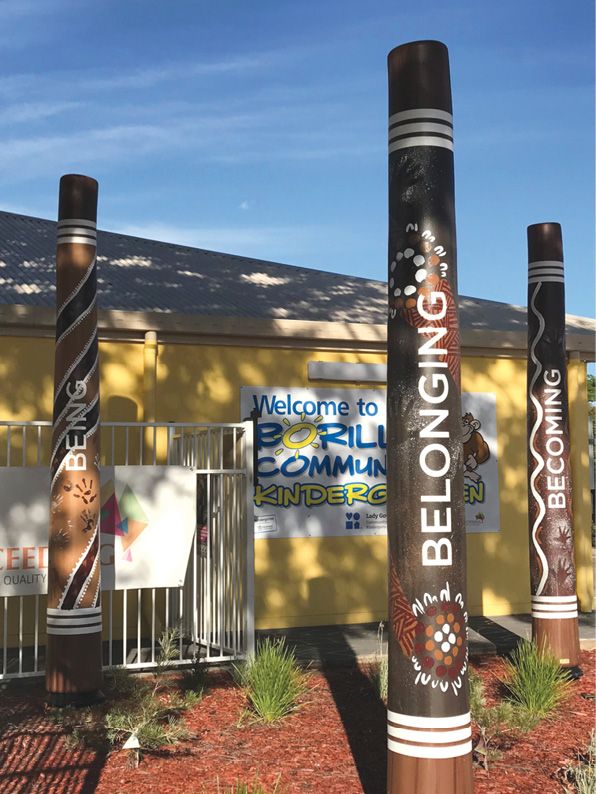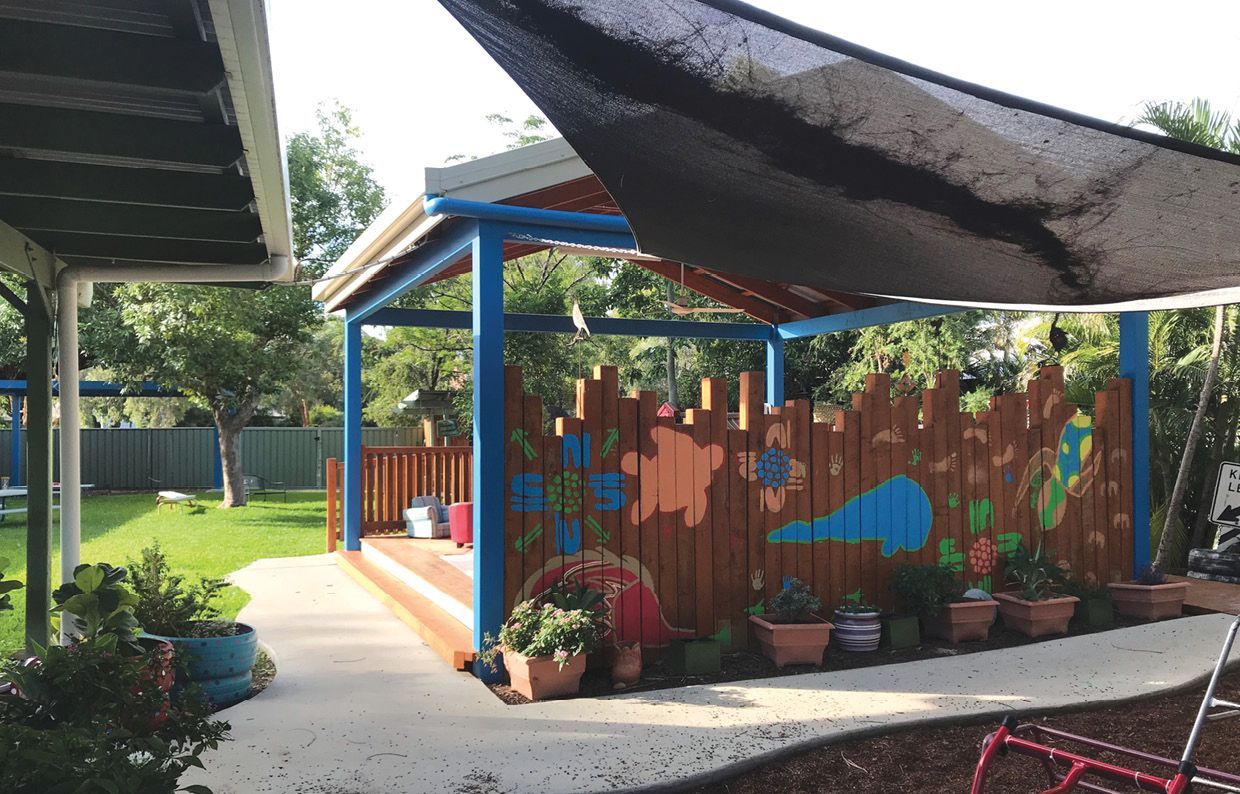
This journey has not been accidental; it has been carefully planned using a holistic and multifaceted approach, supporting and incorporating educators, management committee, families, carers, children and the local community.
The service uses honest, robust critical reflection to examine current policies, philosophy and practices. These elements, combined with an examination and reflection of the theorists who inform and guide the service, has led the kindergarten on its Deadly Journey so far.
Our Deadly Journey has strived to embed Aboriginal and Torres Strait Islander perspectives into the daily life of the kindergarten, develop and improve educator knowledge and in turn, increase the enrolment of First Nations children in a kindergarten program.
The Borilla Kindergarten has achieved success in all these endeavours, empowering local Aboriginal and Torres Strait Islander families, and engaging in meaningful partnerships.
Where it all began
In 2009 educators at Borilla Kindergarten became aware of the mismatch between the Australian Early Development Census (AEDC) data on the Aboriginal and Torres Strait Islander population in the region and the enrolment in the kindergarten.
First Nations enrolment has gone from 1 percent of the cohort in 2009 to 26 percent in 2021. This journey has been driven by genuine critical reflection, which can be confronting and must be undertaken with intent and honesty (by all team members) if long term practices are to be challenged and meaningful change is to occur. Sometimes we must be prepared to challenge old policies.
Questions began with our Kindergarten Waiting List Policy. This policy was written by our Central Governing Body and was identified as a block to enrolment for our First Nations families.
These families did not foresee that they needed to be on a waiting list for years prior to attending kindy – by the time their children were ready, there were no kindy spots left.
The question was asked: Who is advantaged by this policy and who is disadvantaged? The answer was clear! Our First Nations families do not use waiting lists. Until this policy was amended no change to enrolment could occur. This was one critical step towards our Deadly Journey. Do not blindly accept policy!
Another vital step on our Deadly Journey was the development of the Kindergarten’s Reconciliation Action Plan (RAP). Working with our local Elders, our First Nations families, the Kindergarten philosophy and theoretical influences in mind, the RAP slowly evolved.
The RAP provided a road map and included specific employee (HR) procedures, challenging existing policies and protocols.
Other priorities included building genuine community engagement and partnerships with feeder schools, connecting with traditional owners and local Elders, ensuring inclusive resourcing of the kindy and most importantly, nurturing a sense of belonging for all children, families and educators within the service. Borilla Kindergarten’s first RAP was published in 2018.It is updated annually.




































































































































